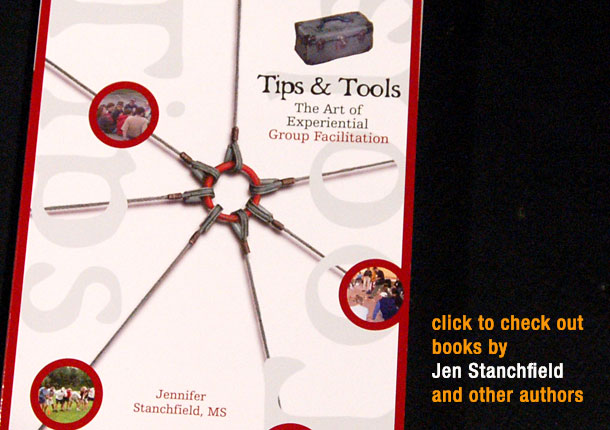
Jan 23, 2010 Recipe for Building a Positive Environment for Learning and Group Development
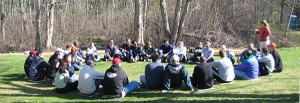
(Excerpt from Tips & Tools: The Art of Experiential Group Facilitation, Wood ‘N’ Barnes Publishing 2007)
Group facilitation is like cooking....
When you first start cooking, you follow the tried and true recipes from family, a friend or colleague, or a cookbook. As your skills increase you start to improvise and vary the ingredients. Successful educators vary ingredients all the time to keep things interesting or to “spice up” their group work and teaching, but they always keep in mind the key ingredients that make it happen. There is a lot of room for creativity, style and adaptation in cooking, but key rules and ingredients are needed in order for a cake to rise or a sauce to thicken.
Key ingredients for creating positive learning environment
- Start off with style! Introductory Activities set the tone for a program, and future group interaction. Think carefully about appropriate beginning activities that include introductions, “breaking the ice” and goal setting. Take time for this process. Sharing commonalities builds trust and empathy. When people are given an opportunity to share with each other in a comfortable way they build the capacity to go more in depth later in group development.
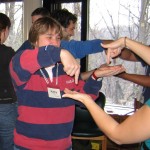
- Creating an opportunity for participants to interact in a non- threatening and fun way dispels fears about group process and being “put on the spot”.
- Help participants know and use each others names in order to build trust and positive communication and establish a supportive environment. A person’s name is the very important to them. Presenting a series of activities that help group member’s use and practice each other’s names can be very helpful to forming stage of group development.
- Keep on eye on time parameters and plan accordingly. It takes time to sequence and build healthy trust between group members. Time and experience together can build comfort in sharing thoughts, ideas and feelings. Set aside time for the reflective aspect of learning. Be patient with the group development pace. Time spent up front building trust and quality reflective skills pays off later!
- Consider the physical environment when planning or evaluating group experience. Intentionally select the environment; arrange seating based on the goals and needs of the group.
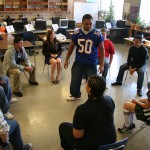
- Create opportunities for both facilitator/teacher and participants to share their clear expectations and goals for the class or lesson.
- When facilitating team building activities participant choice and control is essential. Empowering group members to set reasonable parameters around their participation creates an atmosphere of healthy trust and will actually increase involvement from reluctant participants. In experiential group work, facilitators often aim to create change by pushing comfort zones and creating disequilibrium. But there is a fine line between positive disequilibrium and a mis-educative or potentially damaging experience with participants. Create opportunities for participants to make choices- such as allowing them to pass during group discussion. It will help them buy into the group process.
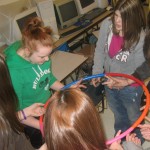
- It can be beneficial for the group to create agreements regarding group norms or desired behaviors after they have spent some time together. They should be reflected upon and revisited throughout the program. At the start of the school year a teacher might present specific classroom rules and expectations with some student input- as the year progresses having students take ownership of this process while revisiting and discussing group norms and behavior makes these agreements more meaningful and effective.
- Thoughtfully sequence activities to build the capacity of trust and sharing over time (time means something different in relevant terms for a one-day program, a class session or a year-long program).
- Differing learning styles and needs should be taken into consideration.
- Reflection, regularly checking in, and reviewing are integral to group process, so that experiences can be built upon one another and related to real life and future learning.



michael cardus
Posted at 16:52h, 24 JanuaryJust like cooking…
Sometimes even when experienced you burn the snot out of it.
Sometimes at different altitudes and latitudes the outcomes are not whats expected.
It often tastes better the next day,
and usually when microwaved it comes out soggy and weird.
Mike